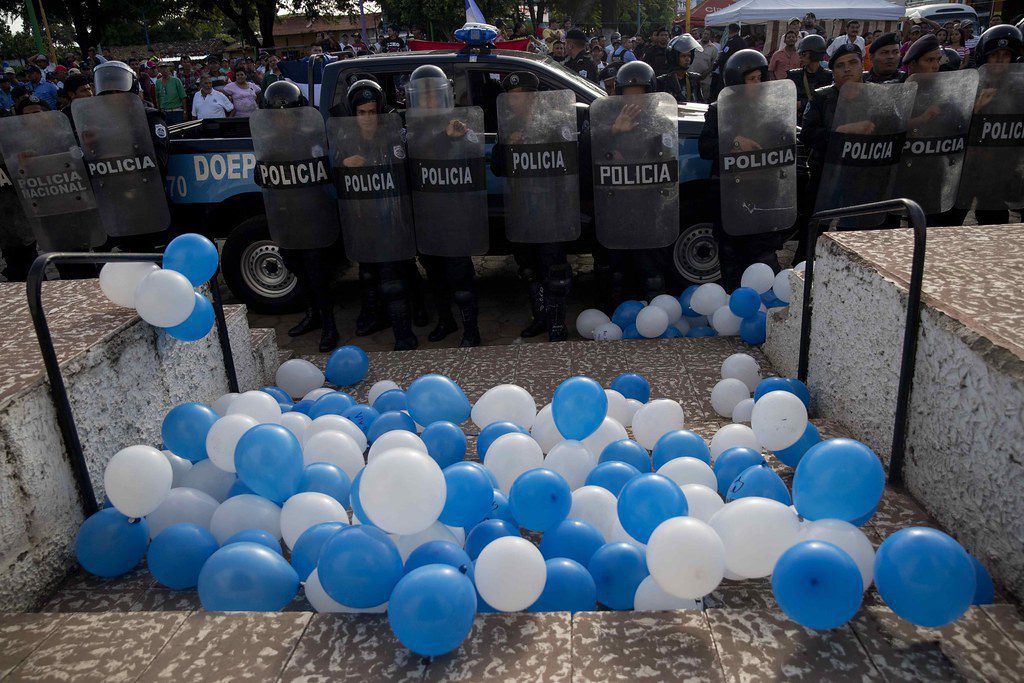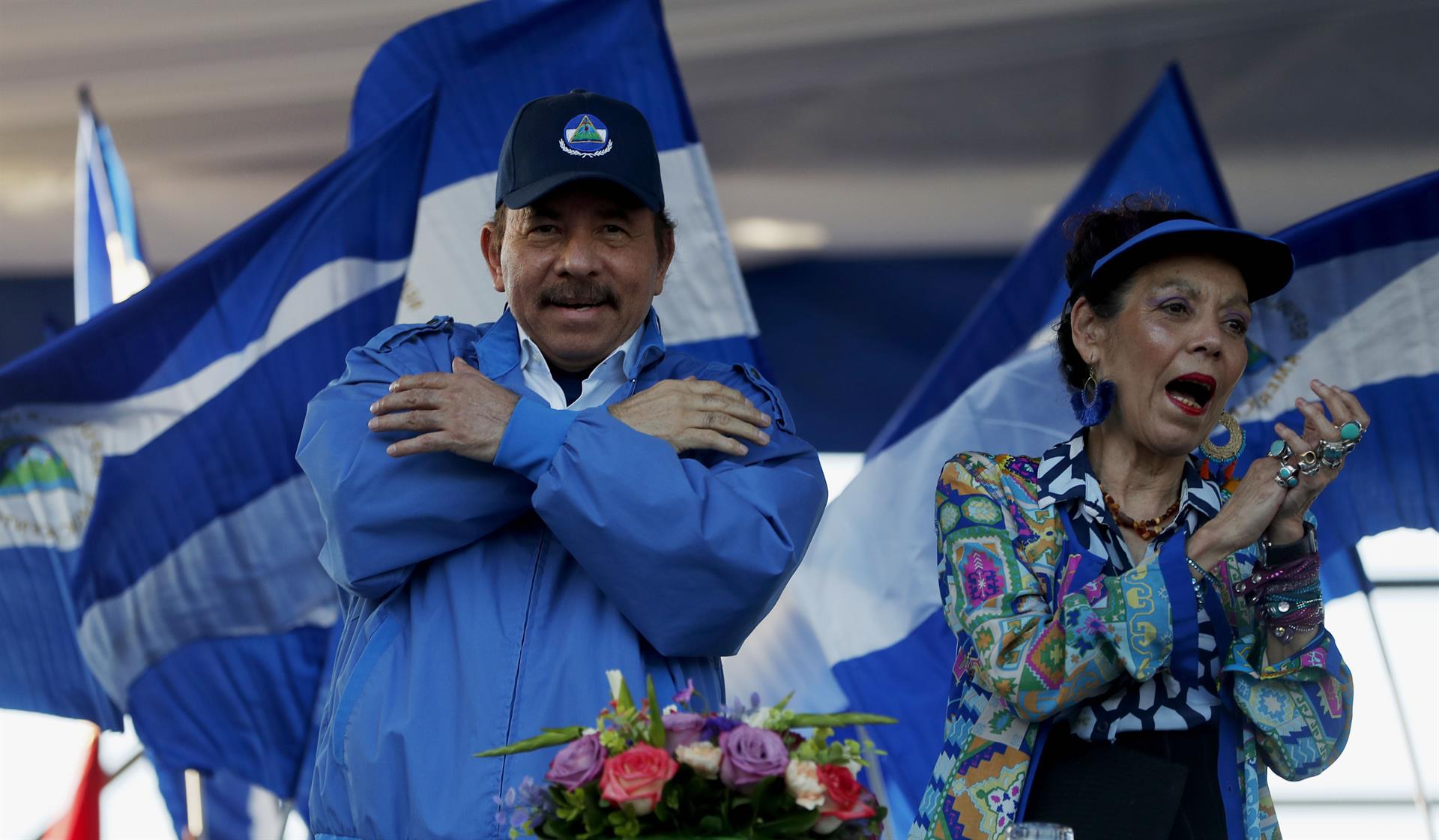Using the same legal process that led to the arrest of Chilean dictator Augusto Pinochet in London, United Kingdom, in 1998, Daniel Ortega and Rosario Murillo could be arrested when they travel outside of Nicaragua, potentially facing charges for committing crimes against humanity, explains lawyer and human rights defender Uriel Pineda.
On August 27th, criminal law attorney and professor Darío Richarte announced that he and his legal team had requested an international arrest warrant against Ortega and Murillo for crimes against humanity from the Supreme Court of Justice of Argentina.
This is called universal jurisdiction, which allows countries in the region to prosecute and punish individuals for crimes, no matter where these were committed or the nationality of the accused. If Richarte’s legal team’s complaint is approved, Ortega and Murillo will be obligated to attend an inquiry where they will be questioned about the accusations against them, Pineda explains.
Ortega and Murillo will not comply with summons

The National Police has been the regime’s main tool of repression in Nicaragua. Divergentes | Archive.
For this summons, the cooperation of Nicaragua’s Judicial Branch authorities will be required, making the interview impossible to carry out. “As we all know, the Nicaraguan Judicial Branch is controlled by the Ortega-Murillo regime,” Pineda clarifies.
If they fail to appear for questioning and the Nicaraguan judicial authorities do not cooperate, the next step is for the Argentine judiciary to issue an arrest warrant against Ortega and Murillo, which could be executed by any other country if they leave Nicaragua.
“In the event that Daniel Ortega or Rosario Murillo leave the country and travel to a third country, a request for cooperation can indeed be issued to that country to carry out the arrest, so they can be transferred to Argentina. A visit to a third country could create a diplomatic scenario where Ortega and Murillo could be detained,” Pineda notes.
Augusto Pinochet was detained following an arrest warrant issued by a judge of Spain’s National Court. In September 1998, Pinochet traveled to the United Kingdom, and on October 16th of that year, Spanish National Court Judge Baltasar Garzón issued a detention order from Spain. The complaint was also supported by universal jurisdiction, and he was accused of genocide, international terrorism, torture, and the disappearance of individuals.
Judicial process could be useful in the future
Even if this judicial process initiated in Argentina does not lead to the detention of Ortega and Murillo, the creation of a judicial record against them and more rigorous documentation of the crimes against humanity they have committed could be useful in the future, Pineda points out.
This legal process could provide the groundwork for a transitional justice process in the future, or a scenario where Ortega and Murillo are brought before the International Criminal Court.
In December 2018, the Interdisciplinary Group of Independent Experts (GIEI) determined that the Ortega-Murillo regime committed crimes against humanity during and after the anti-government protests.
And in March 2023, the United Nations Human Rights Council’s Group of Experts on Human Rights on Nicaragua (GHREN) confirmed that the Ortega regime has “committed and continues to commit serious and systematic human rights violations and abuses” and crimes against humanity against sectors of the Nicaraguan population.
Additionally, there are multiple reports from the Inter-American Commission on Human Rights (IACHR) documenting human rights violations.
Attorney Darío Richarte stated that his team started the investigation in 2022. “At this stage of the investigation, and after analyzing the large amount of evidence accumulated in the case for months, we, the complainants, agree with the prosecution and believe that there is enough evidence to justify the request for an inquiry of the accused,” he stated to the media outlet Infobae.
“The Argentine state has an obligation to act in accordance with its international commitments and national laws on the matter,” Richarte added.





